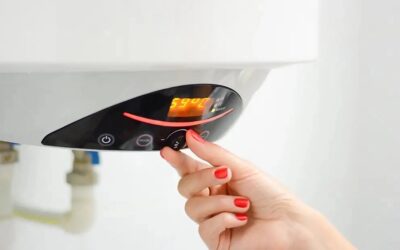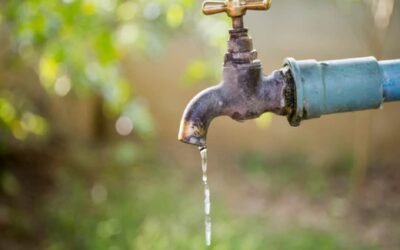The pipes that freeze are homeowners’ most dreadful nightmare during winter. They stop your water flow and present an enormous risk of bursting if quick action gets not taken. Knowing what you should do when pipes freeze can help you save thousands, as bursting pipes could cause significant property damage by flooding areas in your house. A pound of prevention is more than a pound of cure, so let’s first learn the causes of pipes freezing during winter and what you can do to avoid it occurring.
Why Do Pipes Freeze?
In winter, the pipes that supply water are especially susceptible to freezing. However, frozen pipes aren’t a generally accepted aspect of the home. Most of us are shocked when frozen pipes render the plumbing system useless or burst, resulting in flooding. The combination of these factors can make for a disaster: here are some of the elements that cause your plumbing to be more prone to freezing.
- The Temperature Should Be 20°c or Less – Even though water freezes when temperatures reach 32°, water in the pipes is more secure than water that is on the outside. The temperature must be well below freezing. The majority of cases of frozen pipes get experienced when the temperature outside is 200 degrees or less.
- In Unheated Indoor Spaces – Your crawl space, attic, and basement usually have pipes. However, they don’t benefit from the heating system in your home to keep them cozy. Pipes typically burst when they are in these spaces that get not heated in your home.
- It Gets Located on Exterior Walls – Pipes on the exterior walls of your house are right in front of the cold. It is made more difficult due to a lack of insulation or cracks within your walls that allow cold air to enter.
- Insufficient Insulation – Insulation helps protect against the cold; therefore, if you don’t have enough insulation in your attic, walls, or crawl space, the pipes in your home are at higher risk of freezing.
- The Drafty Areas – Wind chill may play a significant role in freezing your pipes. If your crawl space is cold, the lines are less likely to be frozen.
How to Prevent Your Pipes Freezing
It’s impossible to predict the weather. However, you can make sure you make your home more winter-proof and decrease the chance of your pipes freezing.
- Repair Any Cracks That May Have Formed in the Exterior Walls – Be aware of where the service lines, like Internet and TV cables, can enter your home.
- Insulate Areas of the Interior That Aren’t Heated – If your crawl space doesn’t have enough insulation and you want to add more, it could make your pipes more efficient.
- Cabinets Open Beneath Sinks – It lets heated air circulate through the pipes.
- Make Sure to Cover the Pipes with Insulation – Wrap pipes that get exposed in pipe insulation or heating tape.
- Make Sure Your Home Is Heated – Leave your thermostat at least 55 degrees if you’re leaving town.
- Open Faucets – If you know that temperatures could fall, you should open your faucets a little to allow water to drip.
What Do You Do If Your Pipes Fire
Switch off the water in your home. If temperatures are below freezing and you’re not receiving water from a faucet, you likely have frozen pipes. Quick action is crucial to get the line out of the freezer and keep it from breaking. Follow these steps to safeguard your plumbing and your home from damage:
- Turn Off the Water – Your main water supply valve must be located. Call the emergency number of your utility provider if you are unsure of its location and need help finding it.
- Find the Frozen Pipe – Is aware that it’s in an attic, crawl space, outside wall, or beneath an unfinished sink. It is likely to observe frost on the exterior part of the pipe.
- Switch Off the Faucets That Are for the Pipe – It will ease pressure on the frozen portions inside the pipeline.
- Be Aware of Leaks – Contact an expert plumber immediately if the pipe has been damaged or burst.
- Then Try to Melt the Frozen – Suppose you locate the pipe, and it’s readily accessible. In that case, you could use an electric area heater or hair dryer to defrost it. Don’t use any open flame.
Contact a Qualified Plumber for Frozen Pipe Repair
Although it is possible to melt a pipe alone, it’s better to contact an experienced plumber. They’ll arrive with special equipment that can safely and efficiently thaw pipes. Additionally, they’ll be able to spot any damage that’s not immediately obvious. A plumber should look over any lines that suffered freezing to ensure they’re safe and not in danger of failing. Even if a line that has to get frozen appears to be in good shape, it could be cracked or ruptured in a place that isn’t visible, which means it’s likely to leak once it’s the frozen pipe has thawed. However, if the line didn’t leak or burst, it might be weakened due to the force of the ice.
Call Ottawa Plumbing Service for emergency assistance. If your pipes are frozen and need help, call (613) 317-1682 or mail info@ottawaplumbingservice.com for burst & frozen pipe repair.



